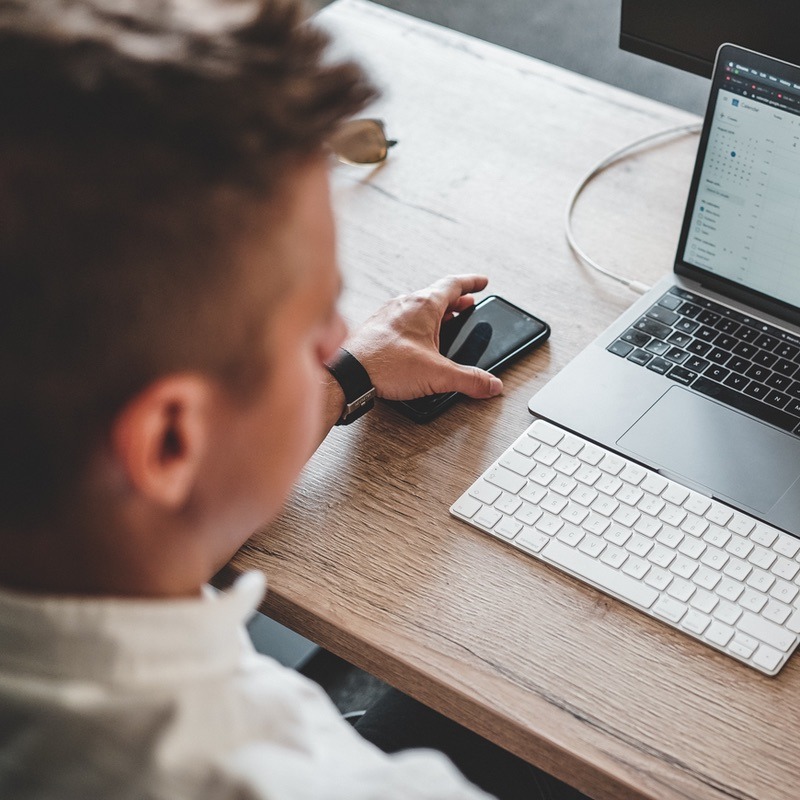
Everyone has bad days on the job: your manager is being too demanding, your client is being rude, your supplier misses a deadline, you made a mistake that cost the company money and got in trouble for it, etc. When you need to vent, you might type an angry message to your friend on Slack or do a quick video conference over Zoom to vent. When you need to cry, you might seek out the last bathroom stall. When you need to send a quick personal email, you tilt your screen a touch to shield it from the person sitting next to you. You do these things to maintain a level of privacy at the office. But in our new digital work from home era during the Covid experience, how much privacy do we really have at work? Is your manager sitting there metaphorically standing over your shoulder looking at everything you read and write? And you have to ask, do you even have privacy from our employers even at home?
With much of the Internet still largely unregulated, there's not legislation in place that covers every complex privacy related question. Some states have privacy and consumer protection laws that covers employee privacy. But in this time period with so much business activity taking place virtually, there's a large amount of unknown legal questions. If an employee uses his or her company's IT systems, say through a work-provided laptop, that's one thing. But what about doing work on your own personal devices? What is the extent of what they can and should monitor? These are questions that society hasn't really answered yet. Can people at the company read private slacks, scan your emails, or monitor your search history? Can they tell if you're looking for other jobs or doing something else they wouldn't like? And if they can, could they use that information against your interests?
Many lawyers seem to think that using a work-provided computer makes monitoring fair game. Companies do have a right to secure their property and networks from malware and intrusion detection. Using a personal computer for work starts to become more of a gray area. If you're using your personal MacBook for work activities, do they have the right to monitor you at all, whether during work hours or not? This becomes legally blurry quickly due to complex Federal policies, different state rules, different rules at different companies, and lack of legal precedents in all situations. Computers aren't the only devices you have to worry about: office issued phones can also be subject to scrutiny. Many large firms are tracking their employees emails, social media messages, and other communications channels.
That could make many employees feel creeped out. This kind of monitoring could erode trust between employees and companies, so it's important that companies are honest about whether they're watching, what they're watching for, and why. Employees in many cases might be best off using a separate machine for personal and business related work: even if it's a bit inconvenient at times. When the Coranvirus pandemic started, managers scrambled for new ways to make sure employees were doing their work. Various types of monitoring software (keyloggers, screenshot software, and more) became far more popular. While not illegal to monitor employees in some states, employers sometimes need consent to do so.
There are real reasons for monitoring and analyzing employee data. Large corporations may study trends in employee behavior in order to make technology decisions, cut costs, or identify new ways to boost productivity. However, since web browsing, email, Slack, and other real-time data is typically accessible to employers, they'll probably take a look at your history if you're suspected of or being investigated for fraud, violating an NDA, or racism sexual harassment in the workplace as some examples to gather evidence that could be used against your interests, especially if there's suspicion of a crime like stealing intellectual property.
The longer that the Covid19 scare goes on, the more and more that these and other questions will be examined. Does bringing a device from work onto your personal network give the company the right to scan your personal network? Does letting your daughter use your work laptop for school homework give them the right to monitor her? Does using one calendar app for personal and work needs let your company see your entire personal life? This is always why staying private online and minimizing your Internet footprint is so vital. All of these issues are interconnected and can have long-reaching consequences for your personal privacy. Removing your phone number from the Internet is one aspect to the privacy puzzle for most people. Remembering that your workplace privacy is also a big deal is also wise for the majority of busy professionals navigating these uncharted waters.
We hope you enjoyed reading this guide and learned something new! Check out our Learning Center to learn more about online privacy and security or consider subscribing to our Online Privacy Service to remove your phone number, name, and address from Google, Bing, Yahoo, and DuckDuckGo search results and hundreds of data broker sites.
